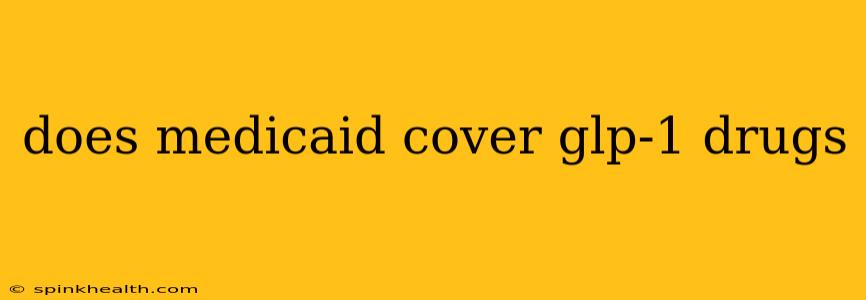The question of whether Medicaid covers GLP-1 drugs is a common one, and unfortunately, there's no simple yes or no answer. Imagine this: Sarah, a diligent single mother working two jobs, recently received a diagnosis of type 2 diabetes. Her doctor recommended a GLP-1 drug to help manage her blood sugar, weight, and overall health. But Sarah's biggest worry? Affordability. This is where the complexities of Medicaid coverage come into play.
Medicaid, a joint federal and state program, provides healthcare coverage to millions of low-income Americans. However, coverage for specific medications, including GLP-1 drugs, can vary significantly depending on your state, your specific Medicaid plan, and even your individual health needs. This makes navigating the system challenging, but understanding the key factors involved can significantly improve your chances of securing coverage.
What are GLP-1 Drugs and Why are They Prescribed?
Before we delve into Medicaid coverage, let's briefly understand GLP-1 drugs. These medications mimic a natural hormone in your body that helps regulate blood sugar levels. They're often prescribed for type 2 diabetes because they can be highly effective in lowering blood sugar, improving weight management, and even reducing the risk of cardiovascular complications. Think of them as sophisticated tools in the fight against diabetes, helping to keep things under control.
Does Medicaid Cover GLP-1 Drugs in My State? The State-by-State Variation
This is the crucial question, and the answer is unfortunately, not straightforward. Medicaid coverage is determined at the state level, meaning each state has its own formulary (list of covered medications) and criteria for approval. Some states have broad coverage for GLP-1 drugs, while others have significant restrictions.
To find out about your specific state's coverage:
- Check your state's Medicaid website: This is your primary resource. Look for a section on the formulary or covered medications.
- Contact your state's Medicaid agency directly: Calling or emailing them is often the most reliable way to get a definitive answer.
- Ask your doctor or pharmacist: They can often provide guidance based on their experience with Medicaid patients in your area.
What Factors Influence Medicaid Coverage of GLP-1 Drugs?
Several factors can influence whether your Medicaid plan will cover a GLP-1 drug:
Prior Authorization:
Many Medicaid plans require prior authorization before they'll cover a GLP-1 drug. This involves your doctor submitting a detailed request demonstrating the medical necessity of the medication for your specific condition. It's like a mini-application process that needs to be completed before approval.
Step Therapy:
Some plans may require you to try less expensive diabetes medications before approving a GLP-1 drug. This is often called "step therapy," where you need to "step" through less expensive options first. This can lead to delays in accessing the medication you need.
Generic vs. Brand-Name Medications:
Medicaid generally favors generic medications when available. While generic versions of GLP-1 drugs are becoming more common, the availability may vary by state and specific drug.
How Can I Increase My Chances of Getting Medicaid Coverage for GLP-1 Drugs?
Here are some tips:
- Work closely with your doctor: They can advocate on your behalf and help navigate the prior authorization process. A well-written and thorough justification from your doctor significantly increases your chances of approval.
- Be persistent: Don't give up if your initial application is denied. Appeal the decision and resubmit your request with any additional information your doctor can provide.
- Explore Patient Assistance Programs: Many pharmaceutical companies offer patient assistance programs that can help cover the cost of medications, regardless of your insurance coverage. This is a valuable secondary resource.
What if Medicaid Doesn't Cover My GLP-1 Drug?
If your Medicaid plan doesn't cover your prescribed GLP-1 drug, there are still options:
- Appeal the decision: As mentioned earlier, appeal the denial.
- Explore patient assistance programs: These programs are designed to help individuals afford medications.
- Talk to your doctor about alternative medications: There are other diabetes medications available that might be covered by your Medicaid plan.
Getting access to the right medication is crucial for managing chronic conditions like type 2 diabetes. Understanding the nuances of Medicaid coverage for GLP-1 drugs is the first step to securing the healthcare you need. Remember, persistence, communication, and thorough research are key in navigating this complex system.

